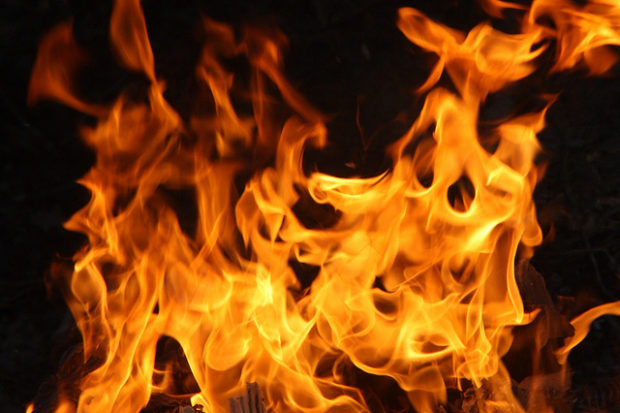
By Tom Frantz
Air pollution in the San Joaquin Valley is described many different ways. For example, there are two basic types of pollution, three classes of chemicals that form it and several activities that cause it.
The pollution types are ozone and particulate matter. Ozone is sometimes called smog. Particulate matter is classified as either small (PM10) or fine (PM2.5).
The three classes of chemicals forming ozone and particulate matter are nitrogen oxides (NOx), volatile organic compounds (VOC) and ammonia (NH3). Dust and soot also add to particulate matter.
There are also seasonal variations in our types of air pollution. Warm temperatures produce ozone from NOx and VOC. Fine particulates (PM2.5) are formed by the mixing of ammonia and NOx when the air is cool. Burning wood and diesel engines also contribute to PM2.5. Dust levels (PM10) rise dramatically during the fall months when crops are harvested.
Sometimes it is good to look at the big picture to determine what is actually causing most of our air pollution and ruining the health and lives of so many people.
Combustion of fuel turns out to be the single biggest source of local air pollution. Dairy operations are the second largest, dust and a few miscellaneous categories are tied for third and fourth. The accompanying chart lays out the approximate proportions for each of these major sources.
Reducing combustion in the Valley would have a dramatic effect on reducing air pollution and is an obvious item to prioritize. Dust can also be reduced. The dairy problem is more intractable. We must basically make them go away by either refusing to consume their products or taxing them for the health and climate damage they are causing.
All combustion sources add to our air pollution so they all need to be reduced. What is needed is to replace virtually all combustion activity with either electricity from solar and wind or direct solar collectors for heat. Cleaning up combustion is old school. It has no place in the future.
Obviously, we have the technology to eliminate the internal combustion engine with electric motors for both our transportation needs and industrial machinery. There is virtually no vehicle type that cannot be replaced with today’s battery and motor combinations.
Solar, wind and tidal energy can also replace boilers in power plants making our electricity supply combustion free.
Fuel used for producing steam and industrial processing heat can be replaced with solar collectors and electrical heaters.
All commercial and residential buildings must be totally electric and could also use passive solar for heat. There is no place for wood fireplaces.
Agricultural burning should be totally banned because there are virtually no situations where agricultural biomass cannot be recycled through a beneficial soil enrichment program.
Doing the necessary conversions away from combustion will take time and money but the health benefits from reduced pollution make it worth the effort here in the San Joaquin Valley. We will not have clean air to breathe for at least 50 years unless we speed up these changes and immediately stop all spending on so-called cleaner combustion processes.
We obviously know what to do to clean the air in our valley. Unfortunately, there are forces, besides our politically and mentally backward air district, that are trying to throw a monkey wrench into the works.
There is tremendous pressure coming from various industries and fossil fuel interests in Sacramento to put a new source of combustion fuels into our valley under the guise of reducing climate change. Fuel from biomass, biogas, corn ethanol and biodiesel are all being promoted because they actually ensure the continued use of fossil fuel.
The fossil fuel industry knows these biofuels will never replace more than a tiny fraction of our total combustion fuel, which includes gasoline, diesel and natural gas. There is simply not enough land and water to grow the amount of plant material needed to significantly reduce fossil fuel use. Growing plants for fuel instead of food also presents ethical issues.
But the California Air Resources Board (CARB) and the state legislature both inexplicably have plans to make biofuels part of our future. CARB is throwing millions of dollars at dairies to help them collect biogas or methane instead of forcing them to stop producing it. This biogas is being mixed with natural gas and is going to our power plants, homes and natural gas vehicles. This tiny fraction of biogas in the system is being used to justify the continued use of natural gas forever. The state legislature is actually passing a bill this summer (SB 1440) to mandate that a certain percentage of natural gas be biogas. The same sort of thing is happening with corn ethanol and biodiesel programs.
There must be resistance to all public subsidies that promote combustion in the Valley. Gas pipelines, dairy digesters, biomass incinerator subsidies and new natural gas buses and trucks should all be discouraged. The future is now.
*****
Longtime clean air advocate Tom Frantz is a retired math teacher and Kern County almond farmer. A founding member of the Central Valley Air Quality Coalition (CVAQ), he serves on its steering committee and as president of the Association of Irritated Residents. The CVAQ is a partnership of more than 70 community, medical, public health and environmental justice organizations representing thousands of residents in the San Joaquin Valley unified in their commitment to improving the health of Californians. For more information, visit www.calcleanair.org.

